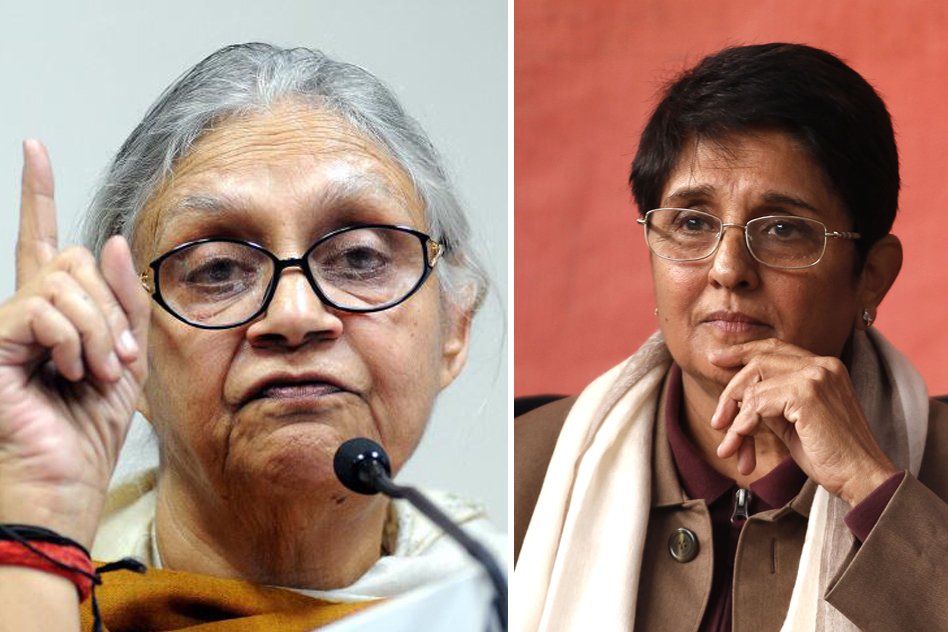All You Need To Know About The Procedure For The Appointment Of Governor; His Powers And Politics
25 May 2016 11:50 AM GMT
Appointments for the Governor post has always raised the eyebrows for the politically neutral crowd of India. Both UPA and NDA had favoured their faithful for the post of governor, the appointment’s have at best been arbitrary. Recently, former IPS officer Kiran has been appointed as the Lieutenant Governor of Puducherry and former Delhi police chief’s name is being considered for the post of Governor for Uttarakhand. In the light of all these arbitrary changes in positions, we try to focus on the roles and functioning of the governor of a state.
The Governor of a state is vested with the executive power of the State. All the executive action of the state has to be taken in the name of the Governor. Usually, every state has one governor but the seventh Constitutional Amendment Act in 1956 made it possible to appoint one person as a governor of two or more states (Article 153). In Union Territories of Delhi, Puducherry and Andaman and Nicobar Islands, the duty is carried out by lieutenant governors.
Appointment of governor
The governor of a state is appointed by the President. The gubernatorial candidate must be a citizen of India, with minimum 35 years of age and above and must not hold any other office of profit, nor be a Member of Parliament or State Legislature.
The governor serves a five year term unless he is dismissed by the President or submits his resignation.
Powers of Governor
The governor enjoys Executive powers, Legislative powers and Discretionary power in the state.
Executive Powers: He has the power to appoint chief minister of a state, the council of ministers of the state, the advocate general and the chairman and members of state public service commission. The President consults the governor in the appointment of judges of the High Courts and the governor appoints the judges of the District Courts.
Legislative Powers: The Governor summons and prorogues the sessions of the State Legislature. He or she is also empowered to dissolve the Legislative Assembly. The governor’s address on these occasions generally outlines new policies of the state government. A bill that the state legislature has passed, can become a law only after the governor gives assent. The governor can return a bill to the state legislature, if it is not a money bill, for reconsideration. However, if the state legislature sends it back to the governor for the second time, the governor must assent to it. The governor has the power to reserve certain bills for the president.
Discretionary Powers: The governor can use his discretion in the selection of the chief minister If no party gets an absolute majority. During an emergency he can override the advice of the council of ministers. At such times, he acts as an agent of the president and becomes the real ruler of the state. He uses his discretion in submitting a report to the president regarding the affairs of the state. He can withhold his assent to a bill and send it to the president for his approval.
The controversy regarding governor appointment
Since the governor is ‘selected’ by the incumbent Central government, we often see many instances when governors appointed by a previous government are removed by an incoming government. The supreme court has ruled that governors should be given security of term but this is generally not adhered to.
In 2004, the UPA government coming into power, replaced the governor of five states — Haryana’s Babu Parmanand, Uttar Pradesh’s Vishnu Kant Shastri, Goa’s Kidar Nath Sahani and Gujarat’s Kailashpati Mishra.
In 2010, the Supreme Court made a petition that government cannot arbitrarily transfer appointed Governors without ‘compelling’ reasons. It declared: “Nor can he be removed on the ground that the Union government has lost confidence in him. It follows, therefore, that a change in government at the Centre is not a ground for removal of governors holding office to make way for others favoured by the new government.”
In 2014, The NDA government came into power and it nudged seven governors of states appointed by the earlier UPA government.
The Logical Indian considers this arbitrary changing of governors in the state and there is an ostensible quid-pro-quo between the new appointees of Governors and the Government. A proper mechanism should be taken to appoint governors wisely. The likes of Sheila Dixit and Kiran Bedi are appointed as governors and lieutenant governors, even after they are decimated in elections as MPs and MLAs. While electoral history need not be a benchmark for appointment, the present prerequisites is too weak and generic facilitating appointment of virtually any person as governor. We request the central government to bring about a constitutional amendment to strengthen the constitutional provisions for the appointment of post of Governor.
 All section
All section














